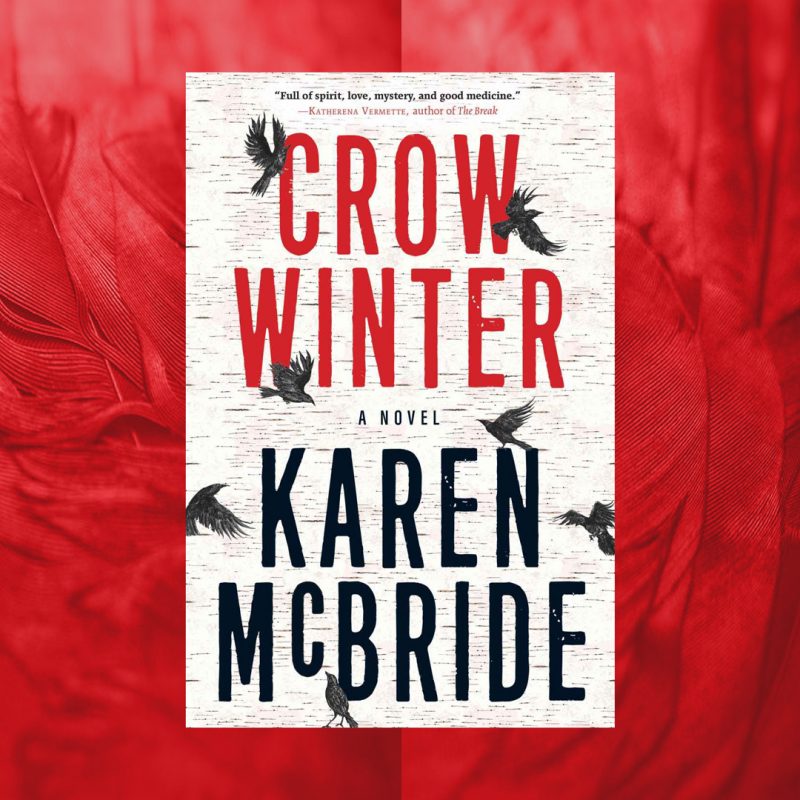USEREVIEW 016: An Echo of Crows
In this striking experimental review, Jessica Bromley Bartram uses the medium of illustration to couple personal essay with literary criticism, and to visually render the prominent motifs of Karen McBride’s debut novel, Crow Winter (Harper Avenue, 2019). Both the novel and the review meet at the crossroads of the human and the animal, the mundane and the transcendent.
ISBN 978-1-443459679 | 352 pp | $22.99 CAD
#CAROUSELreviews
#USEREVIEWEDNESDAY
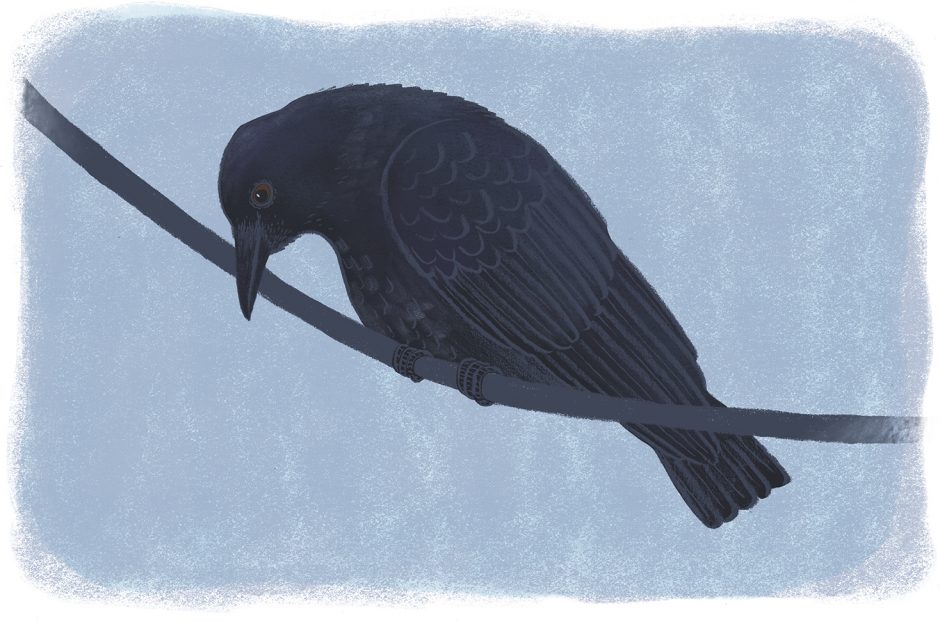
“A crow croaks loudly on the power line above my head, startling me so much that I nearly drop the box. I turn to look and that black bird, with its shiny feathers and dark eyes, is staring right back at me. A flicker of recognition brushes my skin with goosebumps.”
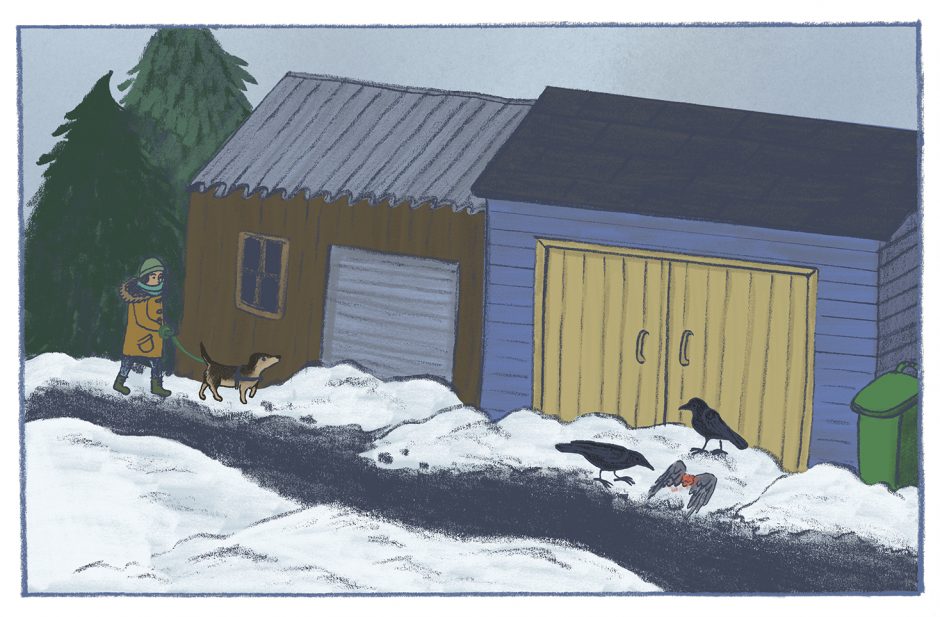
The day I start thinking about how to review Crow Winter I encounter two of the neighbourhood’s crows while walking the dog.
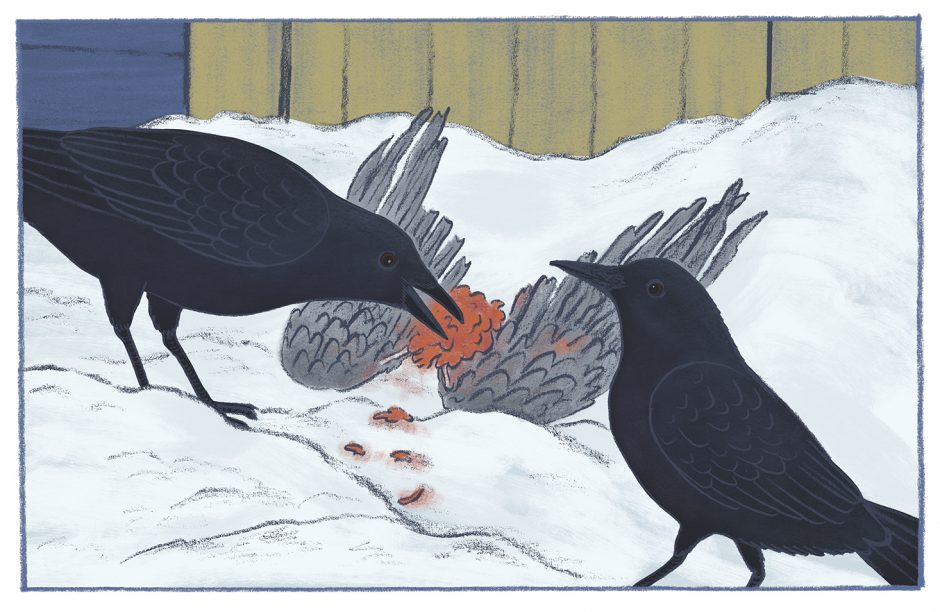
They’re picking scraps from what’s left of a pigeon — two grey wings still folded in flight, connected by a bright red lump of bloody flesh. Yesterday, the wings were sticking straight up out of the snow, no body in sight, killed by a hawk or falcon, but the crows have it now, their dark feathers stark against the new snow.
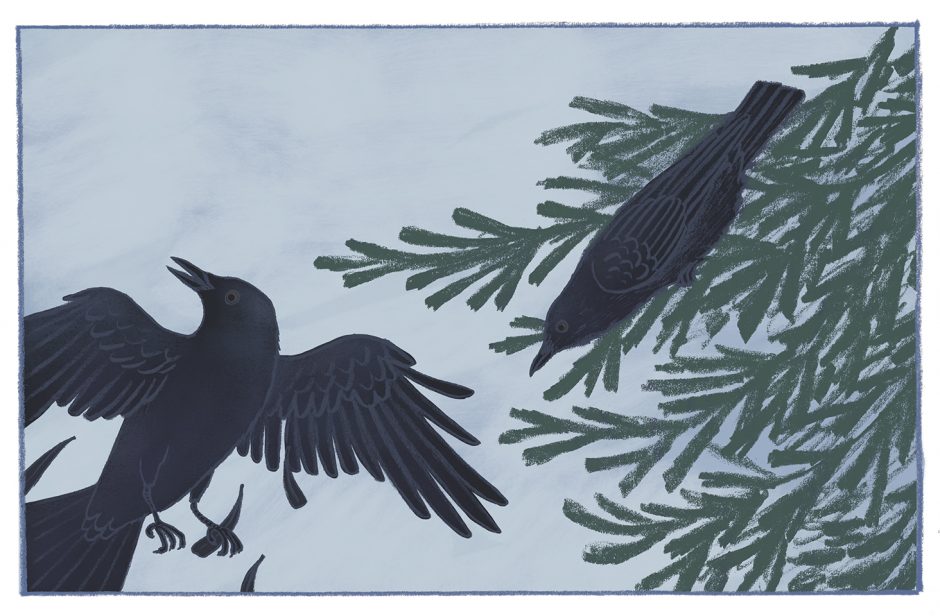
As we pass, they fly up into a nearby pine and I apologize for disturbing their meal, hope they’ll come back down to earth once the dog and I are gone.
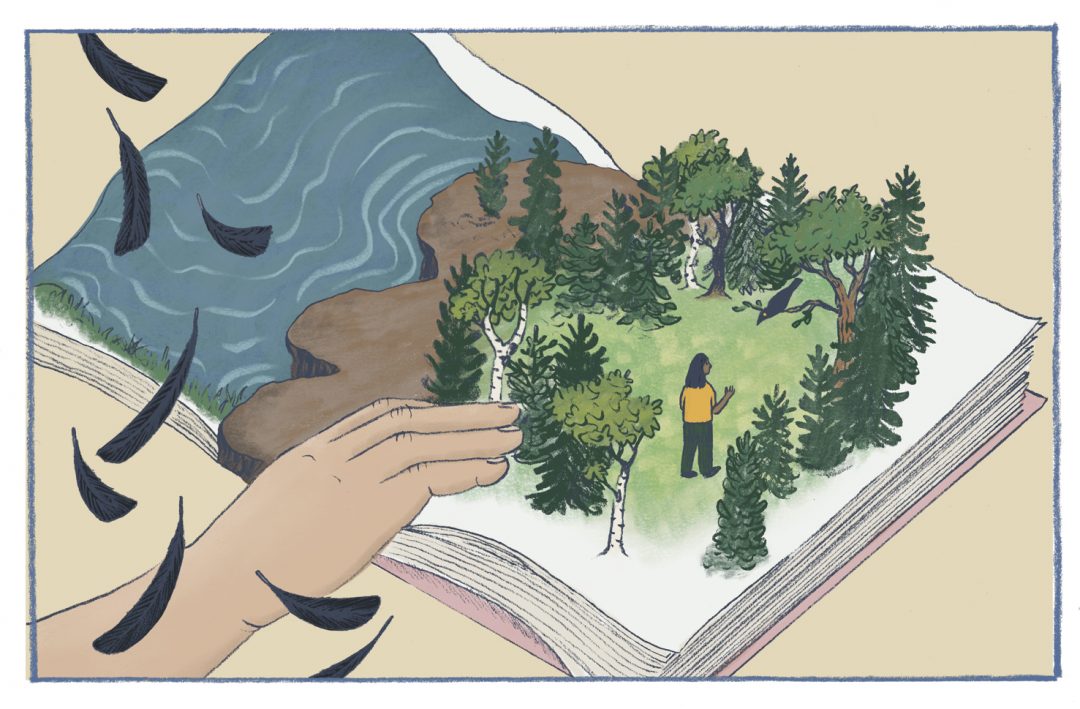
I read this book in May 2020, in month 2.5 of the pandemic, when the uncertainty that’s become a part of our daily life here in Ontario was still new. I read it in one or two sittings, drawn in by Hazel Ellis’ grief at her father’s death, then gripped by the mystery that sits at the heart of the story, which propels Hazel towards a deeper connection with her Anishnaabe roots as she tries to prevent a local developer from developing land that belonged to her father.
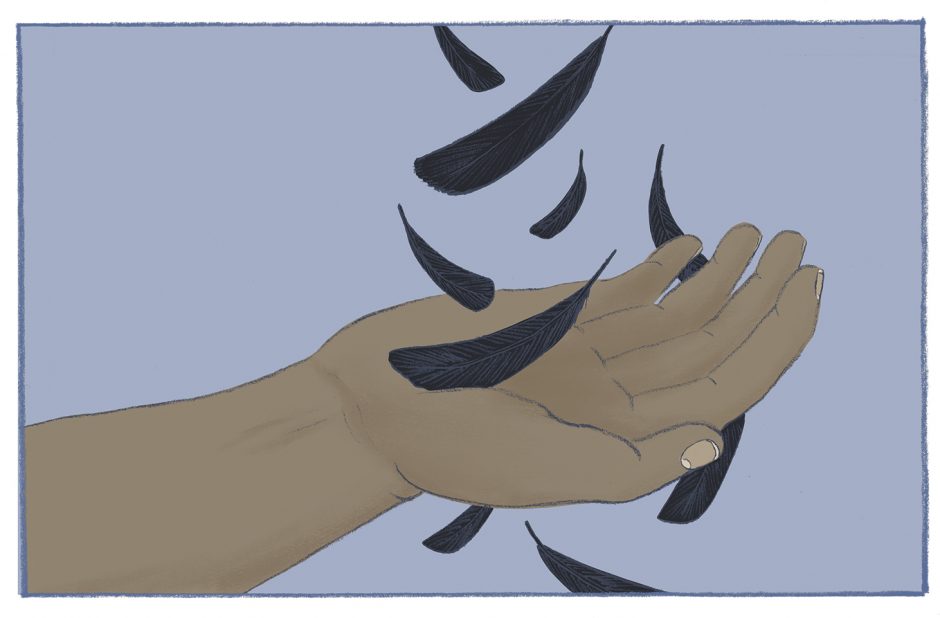
I read it captivated by a story that hinges on Anishnaabe traditional beliefs, introducing readers to Nanabush through both his interactions — which are often combative – with Hazel while in his crow form, and dialogues through which he speaks directly to the reader.
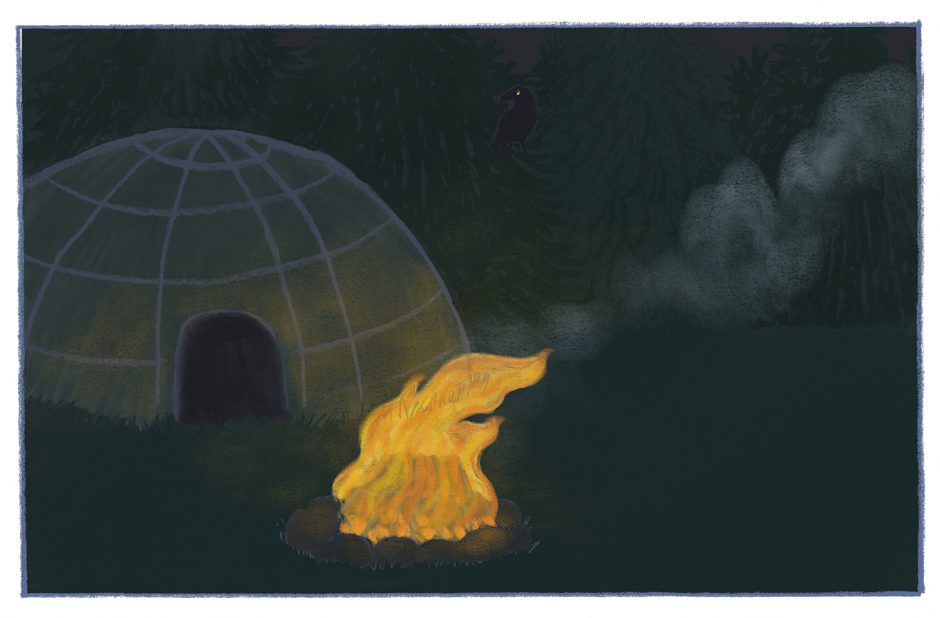
We are also introduced to the Seven through vivid sequences that follow Hazel and Nanabush into the Spirit World:
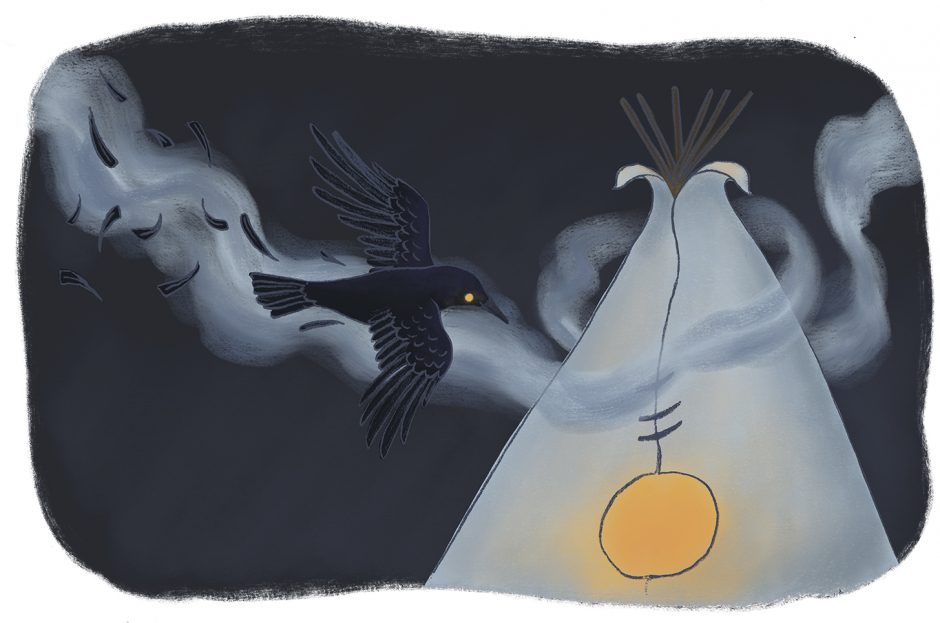
“Sôginijiwin and the rest of the Seven are seated on a dais around the edges of the teepee. They sit with straight backs, tall and proud. Each of them is beautiful in a way that is neither female nor male, with hair woven from the night sky, and skin the colours of deep clay red, smooth fawn, and rich copper. They are dressed in ornately beaded and fringed cloth and hide. They radiate with a light that is both seen and unseen.”
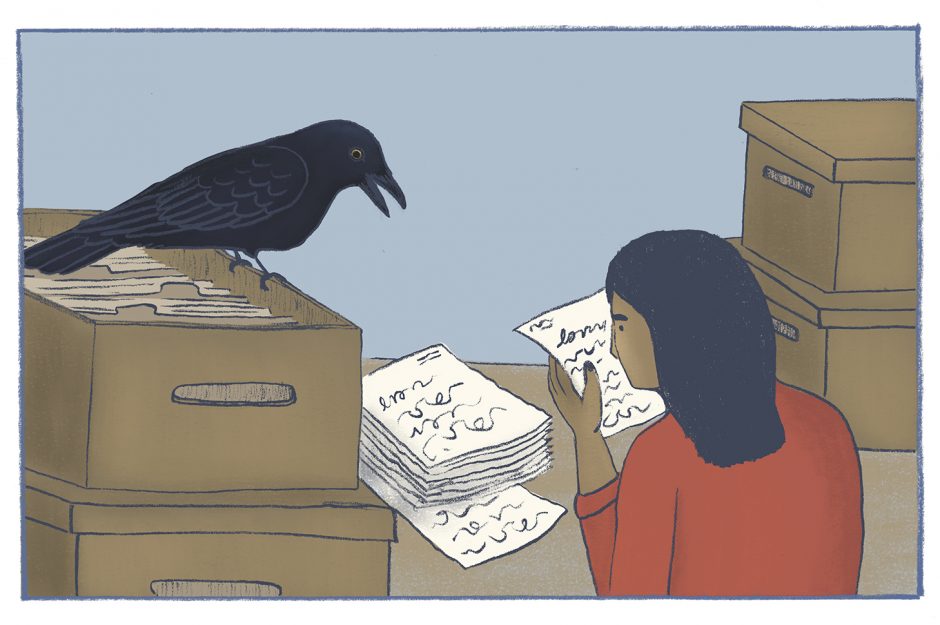
Hazel’s journey is also guided by archival research as her work filing old documents at the Band Office opens up new doors in the questions she’s asking, leading her into a warren of early 20th century correspondence between Indian agents and white developers that’s filled with betrayal, corruption, and — possibly — the answers she’s seeking.
To read a book that contains both vivid dream sequences and slow, painstaking picking through boxes of ancient documents and weaves these two elements together to create a story that sings with emotion and reconnections — between Hazel and her community, her culture, and her family — was exhilarating, especially during the first months of the pandemic when so many connections were struggling to stay strong in a changed world.
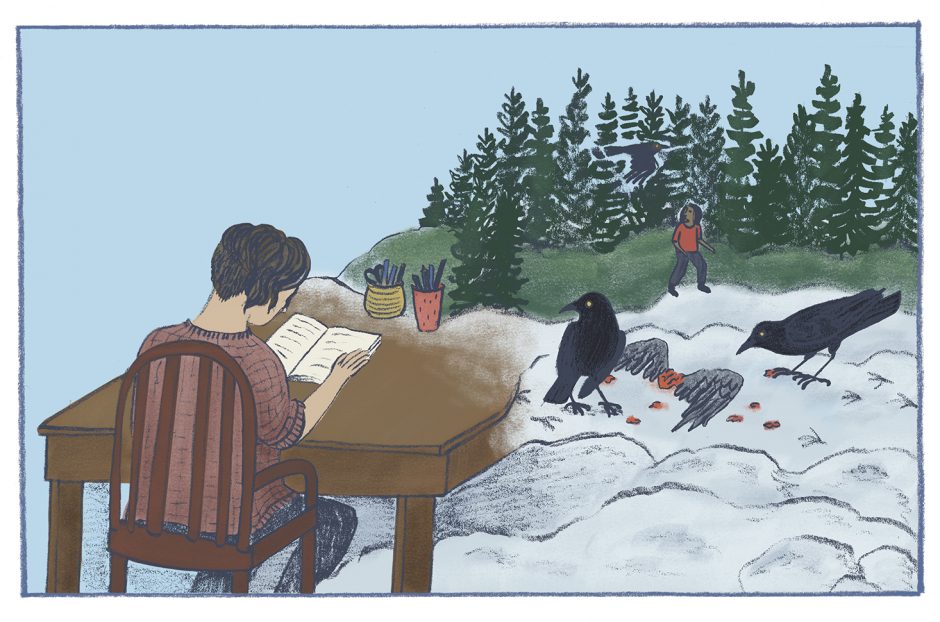
Now, eight months later, during another pandemic lockdown, I return from my walk, sit at my desk and open the book again. Overlaid with the crows in the alley, who pulled me from my grey winter brain-freeze with their sharp beaks, I see Nanabush-as-crow picking at Hazel’s inertia, pulling her through her grief, pushing her past doubt until she can sink her roots deep into the land, finding home as the crow flies.


